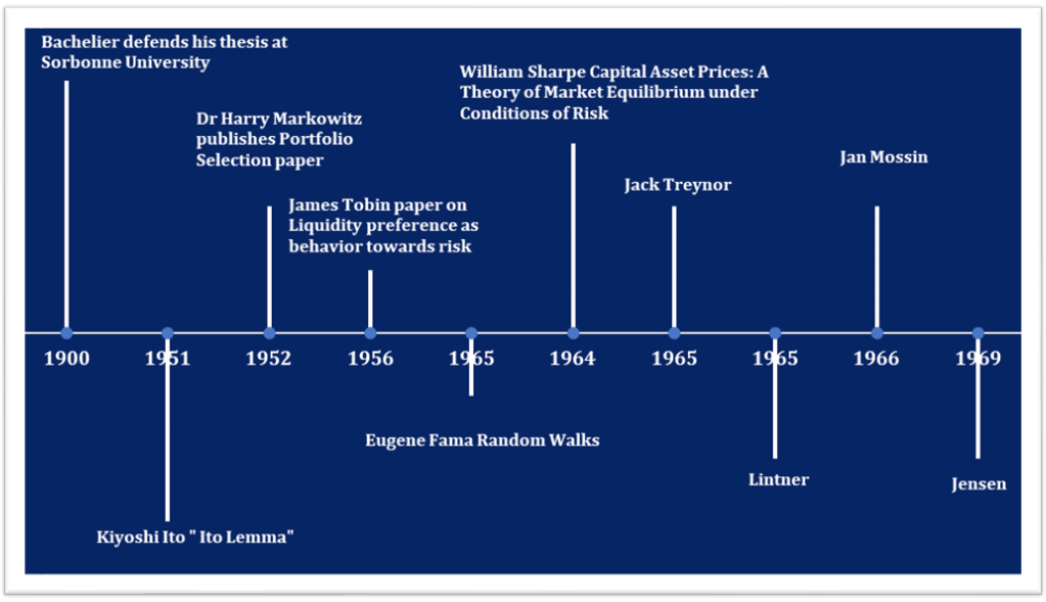JAKARTA, opinca.sch.id – Efficient Market Hypothesis: Unpacking Investment Truths isn’t just some textbook lingo you stumble upon in econ class. It’s something that actually hit me hard when I first started investing in the Jakarta stock market. I used to think—hey, I could just analyze a company, time my buy, and win big. Reality check? Not so fast.
The Efficient Market Hypothesis (EMH) is a foundational theory in finance that suggests that asset prices reflect all available information at any given time. This hypothesis implies that it is impossible to consistently achieve higher returns than the overall market average, as any new information is quickly incorporated into stock prices. For real-world investors, understanding the implications of EMH can significantly impact investment strategies and expectations. This article unpacks the Efficient Market Hypothesis, its forms, criticisms, and practical applications for investors.
Understanding the Efficient Market Hypothesis

1. The Three Forms of EMH
The Efficient Market Hypothesis is typically categorized into three forms, each reflecting different levels of market efficiency:
- Weak Form Efficiency: This form suggests that all past trading information is already reflected in stock prices. Therefore, technical analysis, which relies on historical price patterns, cannot provide an advantage in predicting future price movements.
- Semi-Strong Form Efficiency: This form posits that all publicly available information, including financial statements and news releases, is incorporated into stock prices. As a result, neither fundamental analysis nor technical analysis can consistently yield superior returns.
- Strong Form Efficiency: This most stringent form asserts that all information, both public and private (insider information), is reflected in stock prices. According to this view, even insider trading cannot provide an advantage in achieving higher returns.
Implications of EMH for Investors
1. Difficulty in Beating the Market
One of the primary implications of the Efficient Market Hypothesis is the challenge it presents to active investors and fund managers. If markets are efficient, consistently outperforming the market through stock picking or market timing becomes exceedingly difficult. This leads many investors to consider passive investment strategies, such as index funds, which aim to replicate market performance rather than exceed it.
2. The Role of Information
EMH highlights the importance of information in the investment process. Since stock prices adjust rapidly to new information, investors must stay informed to make timely decisions. However, the hypothesis also suggests that having access to information alone does not guarantee superior returns, as the market may have already priced in that information.
3. Behavioral Finance Considerations
While EMH provides a theoretical framework, it does not account for human behavior and psychological factors that can influence market movements. Behavioral finance studies how emotions and cognitive biases can lead to irrational decision-making, creating market anomalies that contradict the efficient market theory. For example, investor overreaction or underreaction to news can lead to temporary mispricings that savvy investors might exploit.
Criticisms of the Efficient Market Hypothesis
Despite its widespread acceptance, the Efficient Market Hypothesis has faced significant criticisms:
1. Market Anomalies
Numerous studies have documented market anomalies that challenge the EMH, such as the January effect, momentum effect, and value effect. These anomalies suggest that certain patterns in stock prices can be exploited for profit, contradicting the idea of market efficiency.
2. Behavioral Evidence
Behavioral finance research demonstrates that investors often act irrationally, leading to price discrepancies that persist longer than EMH would predict. For instance, investor sentiment can drive stock prices away from their fundamental values, creating opportunities for informed investors.
3. Historical Market Crashes
Events like the dot-com bubble and the 2008 financial crisis raised questions about the efficiency of markets. During these periods, asset prices deviated significantly from their intrinsic values, suggesting that markets may not always reflect all available information accurately.
Practical Applications for Real-World Investors
1. Embracing Passive Investing
Given the implications of EMH, many investors opt for passive investment strategies, such as investing in low-cost index funds or exchange-traded funds (ETFs). These strategies allow investors to gain exposure to the overall market without attempting to time or pick individual stocks.
2. Focusing on Long-Term Goals
Investors should focus on long-term financial goals rather than short-term market fluctuations. EMH suggests that trying to time the market or engage in frequent trading is unlikely to yield superior returns, encouraging a buy-and-hold strategy.
3. Diversification
To mitigate risk, investors should diversify their portfolios across various asset classes and sectors. Diversification helps reduce the impact of any single investment’s poor performance, aligning with the EMH’s premise that no one can consistently predict market movements.
4. Continuous Learning and Adaptation
While EMH suggests that markets are efficient, investors should remain vigilant and informed about market trends, economic indicators, and emerging opportunities. Continuous learning and adaptation can help investors navigate the complexities of the financial markets.
Conclusion
The Efficient Market Hypothesis offers valuable insights into the nature of financial markets and the challenges investors face in achieving superior returns. By understanding its implications, criticisms, and practical applications, real-world investors can make informed decisions about their investment strategies. While EMH suggests that consistently beating the market is difficult, embracing passive investing, focusing on long-term goals, diversifying portfolios, and remaining informed can empower investors to navigate the complexities of the financial landscape effectively.
Boost Your Competence: Uncover Our Insights on Financial
Spotlight Article: “Expected Return: The Anticipated Profit or Loss on an Investment!”
